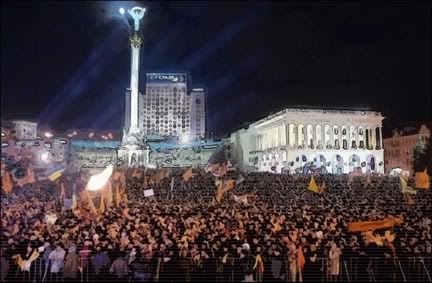Caustic Logic/Guerillas Without Guns
Posted 4/7/07
Caspian export routes, existing and proposed. General contours of Russian-Iranian-Chinese-dominated systems vs. the American-led model.
One window of opportunity for Caspian Sea oil and gas export was due west across the Caucasus states of Azerbaijan and Georgia, the rocky alley between Russian and Iranian turf. These Caucasian pipelines could then connect via Turkey to the Mediterranean, to pipelines - running north through the Balkans - into Europe and its vast energy markets. Other planned lines could snake beneath the Black Sea to enter Europe at Bulgaria, and flow west through Macedonia (split from Yugoslavia in 1991) and end on the Albanian coast.
Before he was driven from power, Slobodan Milosevic had seen these same pipeline dreams and hoped to squeeze Yugoslavia’s way into the Caspian oil rush. He looked to a north-running route with Caspian oil piped from Greece (after being shipped from Ceyhan) and into Europe proper. In 1997 talks began on the Yugoslav portion, a pipeline running north from Macedonia to Belgrade, pumping 200,000 barrels a day to the refinery at Pancevo. It would pass through Kosovo, and would enable Yugoslavia to become a net exporter, shipping oil and petrochemical derivatives along the Rhein-Main-Danube highway to Europe’s markets. Yeltsin’s Russia was reportedly interested in aiding Milosevic, allowing him to tap into a major Russian pipeline to further boost his export potential.
But then those pesky rebels started rocking the boat in Kosovo, and when the war finally came, among the targets NATO chose for the fiercest bombardment were Serbia’s oil refineries, oil storage sites, petrochemical plants, and the infrastructure of ports and bridges along the Danube River. It was made clear that so long as Milosevic remained in power, such ambitions would remain out of reach. So the noble work of Otpor to bring freedom and decency to Yugoslavia also – as an unintended side effect of course – closed the way to Russian-sponsored pipelines tied in with Milosevic’s closed economy. Any such northbound pipeline that may be built will now have a name like Exxon, BP, or Shell attached.
(for more on Caspian pipelines, read here).


No comments:
Post a Comment